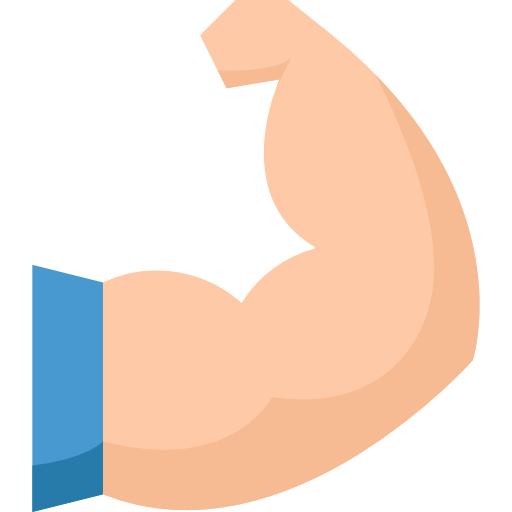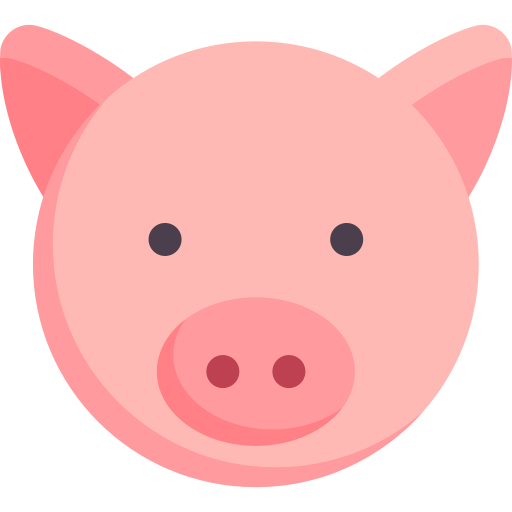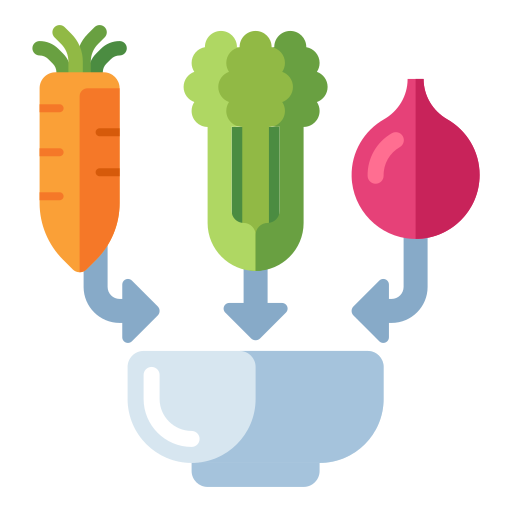 Proteins, iron, omega 3 and 6, fatty acids, vitamins, calcium … Here is the vocabulary you’re going to have to get used to.
Proteins, iron, omega 3 and 6, fatty acids, vitamins, calcium … Here is the vocabulary you’re going to have to get used to.
However, it is easier than it seems.
There are many fears and popular misconceptions regarding vegetarism and veganism. As surprising as it may seem, even the most stunning and largely false keep going around in people’s speeches. Here are a few lines in order to refocus on truth.
DEFICIENCIES
In most people’s mind, a vegetarian cannot be healthy because he will have nutrition deficiencies. Yet, most meat-eaters are usually not very curious about nutrition when populations of vegans/vegetarians worry much more about their needs. Among the most common deficiencies ideas we have:
 PROTEIN
PROTEIN
It embodies strength and health in people’s mind. When we think about protein, we think meat and animal products first. Yet, proteins are present in a lot of plants. Some even have a higher rate of protein than meat. It is actually one of the easiest elements to compensate when switching to a plant-based diet.
DETAILED INFORMATIONS HERE PROTEINS
PROTEINS
 IRON
IRON
When going from a traditional diet to a plant based diet, you can indeed experience a decline in your iron blood rate.
There are actually 2 types of iron: Heme iron, is the one you can find in animals and that has a bioavailability than can go up to 25% which eases its absorption by the organism.
Heme iron, is the one you can find in animals and that has a bioavailability than can go up to 25% which eases its absorption by the organism. Non-heme iron, is the one present in plants. Its bioavailability is close to 5%. This means that it is less easy for the body to get it. However, your body’s ability to absorb and keep iron depends a lot on every individual, so don’t panic.
Non-heme iron, is the one present in plants. Its bioavailability is close to 5%. This means that it is less easy for the body to get it. However, your body’s ability to absorb and keep iron depends a lot on every individual, so don’t panic.
Some people that have a very good iron rate before becoming vegans see a drop in their blood rate after the transition, but most of the time it remains inside the normal rate without any side effect.
On the contrary, many non-vegan people eat very iron-rich meats very regularly and are anaemic.
We are not saying that this is what happens for all meat eaters or vegans. What we want to emphasise is, don’t be scared to become a vegetarian/vegan because of that. Each body reacts on its own terms. Do things the best way, favouring the right foods. If your iron rate drops too much, assess the possibilities with your doctor.
Tip: some foods combinations enhance iron absorption.
DETAILED INFORMATIONS HERE
 LIPIDS, IRON, CALCIUM & OTHERS
LIPIDS, IRON, CALCIUM & OTHERS
 OMEGAS
OMEGAS
We speak more of an Omega 3/6 imbalance than a deficiency. To be healthy, you must respect a certain proportion of one with respect to the other. Omega 6 are very easy to find whereas Omega 3 are less common.
Many people have a very unbalanced diet regarding this topic (including meat eaters) because we are not always careful enough about it. The good thing is that plant-based Omega 3 are present in a lot of foods that are the basics of a balanced plant-based diet.
DETAILED INFORMATIONS HERE LIPIDS, IRON, CALCIUM & OTHERS
LIPIDS, IRON, CALCIUM & OTHERS
 CALCIUM
CALCIUM
We often advocate for dairy products in order to get calcium when a lot of plants are rich of it (cabbage, broccoli, figs, dates, nuts, leguminous plants…). The actual capacity of dairies to maintain strong bones has been widely questioned by many studies recently. We will let you build your own opinion about it but know that it is pretty easy to get enough calcium with plants.
So, go on with broccoli!
DETAILED INFORMATIONS HERE LIPIDS, IRON, CALCIUM & OTHERS
LIPIDS, IRON, CALCIUM & OTHERS
 ZINC
ZINC
Zinc is another vital element for our good health since it interferes at numerous stages and many people (not only vegans) have a deficiency.
Zinc is present in plants but less than in animal products. This is why you must be careful to diversify your diet, to optimize your chances of getting it from different sources and as often as possible. You can get it from foods like: chocolate, pine nuts, pecan nuts, sesame seeds, Brazil nut, ginger, leguminous plants, leaven, oats, grains.
It also seems like soaking leguminous plants and grains before cooking enhances zinc availability when you eat it!
 VITAMINS
VITAMINS
There is no secret, to consume enough and quality vitamins, you must have a diversified diet. This is the same for every type of diet. You can find almost everything in plants in terms of vitamins, except from the B12 vitamin. This one is particularly important, and you must supplement yourself.
DETAILED INFORMATIONS HERE
 Vitamin B12 and suppplements
Vitamin B12 and suppplements
OTHER POPULAR MISCONCEPTIONS
 Men have been eating meat forever
Men have been eating meat forever
Everyone will tell you that prehistoric men were mostly eating meat and that thanks to it, our brain evolved to the intelligence we have today.
The first part of this statement is to be replaced into its context. Knowledge about prehistorical men’s diet are often questioned since it is much easier to find food traces of meat with the bones, than it is to find plants traces since they worsen much faster. They were consuming meat, yes, but to what extend did it contribute to our development? What else did they eat and how?
Then, even if it were true that our intelligence was due to animal protein consumption, is it because we have always done it that we should continue?
Nothing of what we do now is close to what we used to do. Basing ourselves on past to justify today’s actions makes no sense mostly when it is widely destructive. Intensive breeding, slaughterhouses and supermarkets have nothing natural or prehistorical.
However, what is natural with humankind is its willingness to distinguish good and bad. If we can now live and be healthy without taking the lives of animals or mistreat other species, shouldn’t we leverage this thinking capacity that only we have and make our environment benefit from it? Eating vegetarian is complicated
Eating vegetarian is complicated
Eating vegan or vegetarian is not complicated. Changing your diet can be at the beginning. But changing your habits in any field requires time and adaptation. Once the new marks are settled, it will be as easy as before. Things will become automatic again and you won’t ask yourself as many questions.
 Eating vegetarian is expensive
Eating vegetarian is expensive
At Vegetal Conversion, we don’t agree but it all depends on how you do things. The food budget remained the same for many neo-vegetarians and along the years. If you focus on buying substitutes that look like meat to replace it (steaks, seitan), it can at the most, be the same budget.
On the other hand, if you try to feed with fresh products and cook, it can become cheaper than before. Leguminous plants, grains, nuts and spices are not among the most expensive products on the market. If you eat local and according to the seasons, you will find fruits and vegetables for very good prices. Some products can be expensive such as cashews, some algaes or some tofus. However, we can eat very balanced and eat them occasionally.
 Eating vegetarian makes you lose weight
Eating vegetarian makes you lose weight
Totally false idea
Plant based diets exclude some sources of proteins and lipids but they don’t exclude them all!
Plant-based diets can be very rich in lipids, which are by the way often much better sources of fatty acids for the body than a traditional diet. However, as qualitative as they can be, fats are fats.
Peanut butter, avocados, nuts and vegetable oils … There are many sources of fatty acids that are healthy but won’t make you lose weight.
Also, eating vegetarian doesn’t mean excluding carbs. Who says carbs says sugar. Who says sugar says fats. Be careful to consume the good sources of carbs (see a little explanation about good carbs HERE)
Actually, it is often a trap in which we fall at the beginning. By fear of being hungry or to be lacking something, we can be brought to eat too much and mostly rice or pasta. Then, be careful to the extra kilos!
So, unless, your nutrition before vegetarism was too rich and unbalanced, you will not lose weight by switching to a plant-based diet. If you don’t eat “well”, then a rebalancing might happen but this won’t be because you will be eating plants but because you will be eating better !
